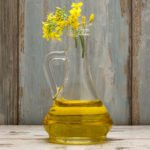For years, proponents of antioxidant supplements have suggested taking the supplements with food. Why? Because they come that way in nature — as part of food — so it makes commonsense and because, anecdotally, antioxidants just seem to work better when taken with meals. Now we may just know why. They protect the body, not just in the bloodstream, but also in the stomach.
The new information comes out of a study from the Hebrew University of Jerusalem, which set out to discover if antioxidants would counterract some of the negative effects of eating fatty foods if taken at the right moment. The study focused on the effects of drinking wine together with a meat-based meal, and found that if you consume wine and meat together, the antioxidants in the wine go right to work blocking the formation of toxins that would normally be released in the digestive process. But, the wine has to hit the digestive system at the same time the meat does or the magic doesn’t happen.
When the digestive system breaks down high-fat foods such as meat, it releases various oxidizing toxic substances as byproducts, and they eventually find their way into the system. One of those toxins, malondialdehyde, has been linked to a host of diseases including arteriosclerosis, cancer, and diabetes. Another, hydroperoxide is mutagenic and carcinogenic.
Lead researcher, Dr. Joseph Kanner, chose to use red wine as the antioxidant source because red wine contains high levels of polyphenols. Polyphenols are powerful antioxidant complexes that destroy cell-damaging free radicals, and that might reduce the incidence of cancer and cardiovascular disease. According to an article in the Economist, “[Dr. Kanner] hypothesised that if the polyphenols arrive in the stomach at the moment when the fats are releasing malondialdehyde and its kin, then this might stop these toxic materials from getting any farther into the body.”
And so, a group of lucky rats got fed turkey meat mixed with wine (vintage not specified), while a less lucky control group received just the turkey. In the end, of course, luck just plain ran out for all the rats as the researchers killed and autopsied them (hopefully, the Merlot they had earlier eased the pain). And voila! Just as Dr. Kanner had hoped, the oenophillac rats had fewer harmful free radicals in their digestive tracts.
The researchers say the stomach acts as a “bioreactor” that facilitates the beneficial effects of the polyphenols. The polyphenols both block the formation of toxic byproducts and also prevent the toxins from being absorbed into the bloodstream. The key is that the antioxidants need to be present when the food enters the digestive cycle.
Incidentally, you’re not restricted to wine; a host of other foods contain polyphenols. Fruits and vegetables, and particularly the skins of certain fruits, contain them in abundance. So do nuts, olive oil, tea, and chocolate — and if you don’t like wine but still want to make a toast, so does beer. Apparently, though, the mix of polyphenols in wine is particularly beneficial.
Of course, you can also just take a good full-spectrum antioxidant supplement, but now you know that it’s essential to take it with your meals to maximize the benefit.
:hc












Great article and very informative! Thanks to people like you, we all have a much better chance of taking proper care of ourselves.
Is there a supplement or formula available that combines all of these antioxicidents or must you take them all individually?
Thanks for you help and please keep doing what you do!
Every tikme I see claims for specialized antioxidants such as lutein or lycopene or even resveratol, I grab my bottle of Ultimate Antioxidant and it always has as much or more of the particular antioxidant that is being promoted. It seems Ultimate Antioxidant is such a good value compared to single antioxidants. Keep up the good work. By the way, what is a therapeutic value. I am trying to up NAC to help clear cataracts. I’m sure this would help, but I don’t know what amount to take.
This article is Good and informative. Vegetables and fruits with the deepest colors contain the highest levels of antioxidant nutrients.
_____________
Addiction Recovery Pennsylvania
Hi Jon, I’m hope you’ve heard of MaxGXL because my question is related to it. My confusion stems from the claims of its formulator (Dr. Robert H. Keller) that glutathione supplements do not do their job as intended because most of them get destroyed within our stomachs and intestines during the digestion process, and whatever little that survives after the digestion process also cannot enter our cell membranes because they are to large in size. But this article of yours says that anti-toxins (and glutathione certainly is one of them) also work within our stomachs. Or am I referring to different types of anti-toxins? Can you help me out here?
Yes, the study shows that “”some”” antioxidants can help neutralize free radicals in the stomach — but not necessarily all antioxidants, and not necessarily all equally. The group that appears particularly effective is the polyphenols…of which glutahione is NOT one.
On the other hand, glutathione is indeed key antioxidant in the bloodstream and yes it’s true that it is not absrobed well in the intestinal tract. That’s why instead of taking glutathione supplements, it’s better to take gluathione precusor supplements (such as N-acetyl-cysteine) and glutathione stimulators such as certain forms of whey.
Hi! Thanks so much for your article. I have heard about red wine and its antioxidant value and have been searching for products with resveratrol as mentioned in your article. Right now I’m taking Green Tea Plus, a concentrated Green Tea extract. It’s good—lots of polyphenols so it is potent in antioxidant power. I would like to brew fresh green tea leaves but frankly, I don’t like it very much. This is just as good. http://www.newvitality.com/green-tea-plus/p/GREENTEAPLUSb/
Hi there Mr. Barron,
I read recently read a new study conducted by researchers from the University of Illinois and published in the journal Nutrition Research on Tomatoes and their antioxidant component lycopene.
From their research on phytocompounds in the Tomatoe, they’re speculating that the health benefits derived may be from the compounds phytoene (PE) and phytofluene (PF). Apparently both compounds accumulate in the prostate gland and liver, like lycopene, to a significant degree.
They’re being studied for their respective properties and antioxidant action, I believe. Perhaps they work synergystically with lycopene? Maybe they have some extraordinary benefits on their own? FOOD for thought!
THANKS!